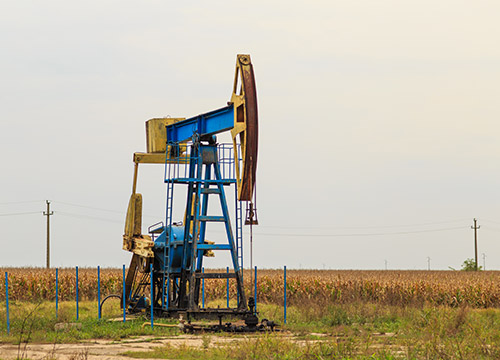Part One: Parameters & Principles of Land Ownership in Oil & Gas Negotiations
By Andy Tiwari

A “land man” comes a callin’ to your front gate. It was a welcome and fairly common occurrence in the Permian Basin of West Texas & New Mexico where I grew up to have these men come to your property. Happily, it has become very common in the Eagle Ford Shale play of South & Central Texas in the last few years.
There are many elements to consider when an oil company, or a land man representing an oil company, approaches a landowner seeking a lease to explore for and produce oil and gas from a particular piece of land.
The first thing to consider is where and from whom do you get trustworthy advice concerning the terms of such a contract. The money always sounds good, but don’t jump too fast! First, you should seek a competent attorney who has experience negotiating leases, and that lawyer should be consulted before you sign any documents or accept anything from anyone – especially advice from other landowners.
Next, the land man already has an idea of who owns the minerals under your land or he wouldn’t be there seeking your signature on a lease. Sometimes some or all of the minerals were “severed” from the surface ownership previously and now are owned by someone else. If so, and you’re not part of that group, you may not know a new lease has been signed until a survey crew shows up wanting, and having the right, to enter your land to locate and “stake” a drilling spot. So that’s an important distinction.
Owning a piece of property typically and traditionally includes owning all of the component parts of the property – the “full bundle of sticks” – air above, water on or under, minerals, timber, resident wildlife, crops, buildings, fences, etc., existing in, on or under that property and found directly below and within its boundary. This is what’s called “fee simple” ownership. Fee simple is an Old English common law term for full ownership with all its attendant rights.
Along with this concept there is a related ownership term that is important: “capture”. A good way to explain the legal definition is by using an example involving wildlife: “Capture” means that you only have a right to a deer when it’s on your property. If the deer leaves your property, your neighbor now has the right to capture it, so you must capture it while it’s on your property. Otherwise, you lose it. Oil and gas are the same. You must extract oil or gas from your property, while it’s on and under your property. If the fuel is sucked out from under your property or gravitates outside the borders of your property, you no longer can capture it.
A land man wants to approach the correct owners of the oil and gas and other minerals and has likely spent many hours reviewing deed records, old surveys, probate records, birth, marriage and death records in the county courthouses of the area to ascertain this information. By the time a landowner/mineral owner is approached, the land man knows a lot about a particular piece of property, but there are usually some gaps of knowledge in the information and corrections will need to be made and executed to update the information. We’ll discuss those next, so look out for the next post.
If you need legal advice, schedule a meeting with Tiwari + Bell PLLC through our website or by calling (210) 417-4167.
